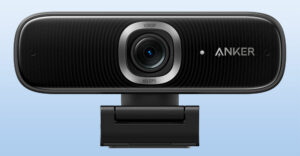
Samsung and Airgo, a company that plans to take 802.11n or WiFi wireless to another level with its multiple input multiple output (MIMO) antenna technology, announced this week they will ship new notebook computers that incorporate the extended reach and higher data rate wireless solution.
The companies did not announce a release date, but they did say Samsung’s new X20 laptops will feature embedded MIMO-enhanced WiFi technology with Airgo’s True MIMO chipset.
Analysts highlighted that the MIMO technology, which increases the number of antennas that send and receive wireless signals, is competing against other, next-generation WiFi solutions, but they nevertheless indicated a belief that the new Samsung computers are significant and a sign of more to come.
“This is indicative of progress, both technically and ostensibly in terms of standards,” Yankee Group wireless analyst John Jackson told TechNewsWorld. “[As for] MIMO, I wouldn’t call it the holy grail, but getting it into a laptop or mobile phone form factor is something companies are investing heavily in.”
Further, Faster, Better
Although there are other technologies competing to be part of the next 802.11n wireless standard — currently under consideration by the IEEE — there is agreement that MIMO is likely be part of it.
Samsung and Airgo said the forthcoming X20 laptops’ MIMO capabilities will provide interoperability with the millions of existing 802.11b, g, and a devices, with Airgo’s “high-performance, cost-effective and power-efficient second generation of True MIMO chipset technology” for higher distance, speed and reliability in wireless connections.
“Given their significant technology lead, Airgo’s True MIMO is the best fit for embedded wireless in our new high-performance Samsung X20 laptops,” said a statement from K.H. Uhm, vice president of marketing for Samsung.
Difficult, Expensive
Yankee Group’s Jackson said MIMO is not new, but to date has been characterized by its high cost and degree of difficulty.
“It’s difficult to rationalize from a cost and complexity standpoint,” he said.
Jackson also indicated there are a number of different, but similar approaches — including Qualcomm’s “receive diversity” technology — which attempt to increase spectrum and battery efficiency through multiple or innovative antennas.
More Wireless, More MIMO
Nevertheless, Jackson said as wireless LAN capabilities are becoming more commonplace in notebooks, the MIMO technology makes sense.
“It’s much more suited to the laptop, where the cost is absorbed into the overall bill of materials,” he said.
Jackson added the technology does represent progress on the next iteration of WiFi wireless technology, which many companies are pursuing.
“It plays right into the faster, more, better equation,” he said.
Before Its Time?
IDC analyst Shiv Bakhshi told TechNewsWorld the new Samsung-Airgo MIMO notebooks represented an exciting and innovative technology, but that the market may be slow to catch on to the next-generation of wireless and wireless LAN.
“It’s a fantastic technology, but it may be a little bit ahead of its time curve,” he said.
While indicating MIMO has only a small sliver of the existing WLAN market, Bakhshi indicated an enterprise notebook may be the right form factor for the technology.
“That’s exactly why the enterprise play might be more interesting,” he said of the X20 notebooks.
Gartner vice president Ken Dulaney stressed Airgo’s MIMO technology is not yet the approved next-gen WiFi standard and said the companies were taking the technology to market too soon.
“If customers are buying that, they have to view it as a totally proprietary technology, plus they will need an access point that is capable as well,” Dulaney told TechNewsWorld.
He added that other WiFi technologies, such as 802.11a and g, were still providing improved and extended wireless capabilities, adding that adoption of the X20 technology comes with other “bets” for users.
“There’s other ways to do it,” Dulaney said. “For customers, I don’t think they should pay a cent more for that technology right now.”





















































